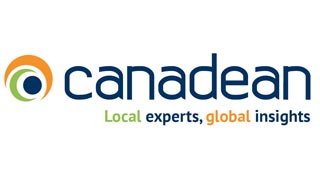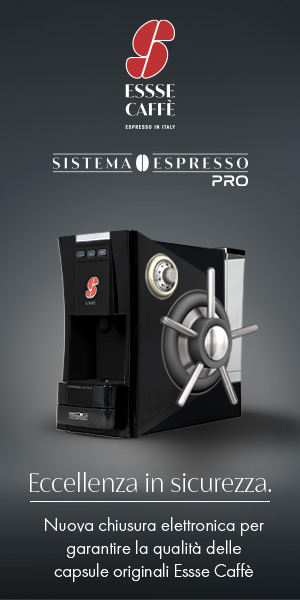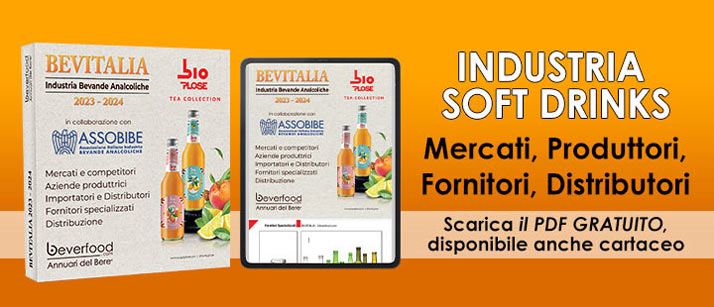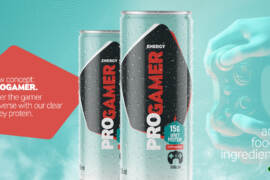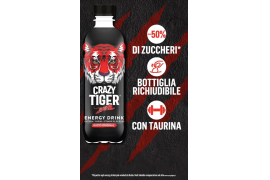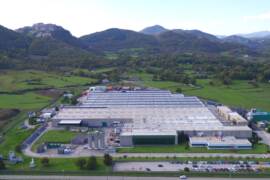Nonostante il difficile periodo economico, gli energy drink mostrano una robusta crescita in Europa. Questo per via degli innovativi sapori e ingredienti, nonché per la nascita di alternative a basso contenuto calorico che incontrano le necessità di un piccolo, ma crescente, gruppo di consumatori attenti alla salute, come è stato analizzato nel nuovo report di Canadean.
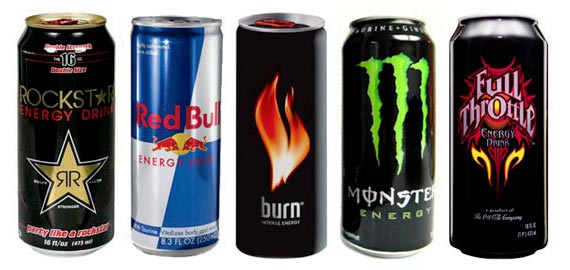
Secondo il report di Canadean, il mercato europeo degli energy drink si prevede che crescerà del 4,9%, avvicinandosi a 550 milioni di litri nel 2015. “Gli energy drink sono emersi in grande misura nella routine quotidiana delle persone, il che può essere una delle ragioni per cui tale settore è così resistente in paesi dove altre categorie come carbonati e birra sono in continuo declino.” ha detto Angela Wynne, analista al Canadean. Anche in paesi come Grecia e Russia, dove i consumatori spendono di meno in bevande a causa delle circostanze economiche, gli energy drink mantengono un mercato stabile. Il report nota che l’allargamento della gamma di gusti e le varie estensioni dei prodotti sono i principali motori che muovono la continua espansione degli energy drink. Nonostante questo, gli energy drink rimangono un mercato di nicchia, rappresentando meno dello 0,1% del totale consumo di bevande.
Gli energy drink ai sapori di frutta si rivelano molto popolari
La quantità di prodotti ai sapori di frutta consumati è aumentata circa dell’11% tra il 2013 e il 2014, con il lancio di nuovi gusti come arancia, mojito, limone-lime o ananas-lime. “Questi nuovi gusti mirano a raggiungere i consumatori a cui non piace il classico sapore degli energy drink e che li consumano per rinfrescarsi, specialmente durante l’estate.” Ha detto la Wynne. In alcuni paesi, come l’Ungheria e la Polonia, le nuove innovazioni in fatto di gusti hanno generato l’avvicinamento delle generazioni più giovani agli energy drink.
Energy drink con ingredienti naturali sulla cresta dell’onda
Canadean ha anche osservato alcuni sviluppi negli energy drink con ingredienti naturali, come la caffeina di origine naturale e l’assenza di taurina. In Lettonia, Aldaris (gruppo Carlsberg) ha lanciato “Super Manki” nel 2014 – un energy drink naturale senza caffeina e taurina. Anche il guarana è diventato molto popolare, siccome in Belgio, Olanda e Germania molti prodotti contengono come ingrediente bacche di guarana.
Le alternative a ipo-caloriche tolgono le preoccupazioni in fatto di salute
Il consumo di energy drink a basso contenuto calorico è aumentato dell’11,6% in Europa tra il 2013 e il 2014, poiché i consumatori vedono le alternative ipo-caloriche come un modo per evitare problemi di salute. “L’industria sta provando a cambiare punto di vista sulla categoria e ad assecondare i nuovi consumatori attenti alla salute in modo da incrementarne in futuro il mercato.” Ha affermato la Wynne. Comunque, la quota di mercato degli energy drink ipo-calorici è bassa (<0.1%) e ragionevolmente rimarrà tale visto che la maggior parte degli energy drink è consumata da giovani uomini che sono meno preoccupati circa il contenuto calorico.
Fonte: www.canadean.com/news/energy-drinks-resilient-in-declining-european-beverage-market/
Energy drinks resilient in declining European beverage market
Despite difficult financial times, energy drinks show robust growth in Europe. This is due to flavour and ingredient innovations, as well as the emergence of low calorie options that meet the needs of a small, but growing, health-conscious consumer group, finds new report by Canadean.
According to the report, the European energy drinks market is expected to increase by 4.9% to reach close to 550 million litres in 2015. “Energy drinks are highly submerged in people’s daily routines, which might be one of the reasons why they are so resilient in countries where other categories such as carbonates and beer have been continually declining,” says Angela Wynne, analyst at Canadean. Even in countries like Greece and Russia, where consumers spend less on beverages due to the economic circumstances, energy drink volumes have stayed stable. The report finds that the widening range of flavours and product extensions are the main drivers behind the continued expansion of energy drinks. Nevertheless, energy drinks remains a niche market, accounting for less than 0.1% of total beverage consumption.
Fruit-flavoured energy drinks prove to be popular
The volume of fruit-flavoured products has increased by around 11% between 2013 and 2014, with new flavours such as orange, mojito, lemon-lime or pineapple-lime being launched. “These new flavours are targeting consumers who do not like the classic taste of energy drinks and who use them for refreshment, especially during the summer time,” says Wynne. In some countries, such as Hungary and Poland, new flavour innovations have succeeded in bringing back the younger generation to energy drinks.
Energy drinks with natural ingredients on the rise
Canadean also witnessed some development in energy drinks with natural ingredients, such as naturally sourced caffeine and drinks without taurine. In Latvia, Aldaris (Carlsberg Group) launched ‘Super Manki’ in 2014 – a natural energy drink free from caffeine and taurine. Guarana is also becoming more popular, with product ranges in Belgium, the Netherlands and Germany often containing the guarana berry as an ingredient.
Low calorie options to meet concerns over health
Low calorie energy drinks have also increased by 11.6% across Europe between 2013 and 2014, as consumers see low calorie options as a way to overcome the current health concerns over energy drinks. “The industry is trying to change the perception of the category and tap into the new health-conscious demographic to ensure its future growth,” says Wynne. However, the market share of low calorie energy drinks is low (<0.1%) and likely to remain low as most energy drinks are consumed by young men who are less concerned about calorie content.
Source: www.canadean.com/news/energy-drinks-resilient-in-declining-european-beverage-market/



